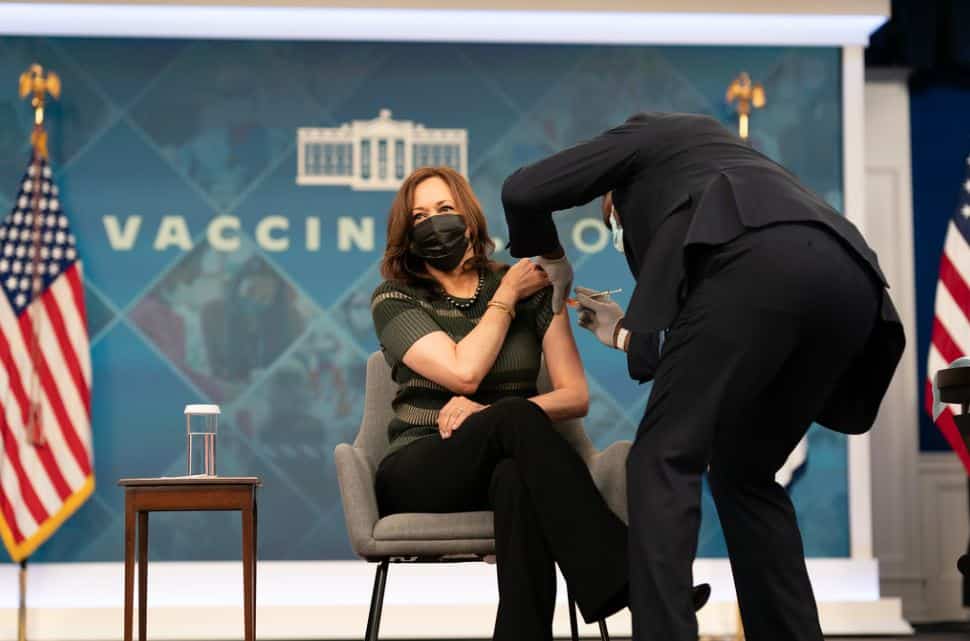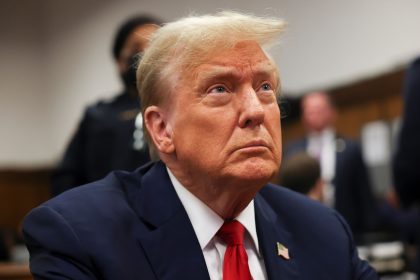White House Vaccine Mandate in Limbo as Deadline Approaches

WASHINGTON — The Biden administration issued an emergency rule in November mandating all businesses with 100 or more employees require staff to get fully vaccinated or undergo weekly testing. Set to take effect on Jan. 4 and be enforced by the Occupational Safety and Health Administration, the rule now faces opposition in the Senate.
“I have long said we should incentivize, not penalize, private employers whose responsibility it is to protect their employees from COVID-19,” said Sen. Joe Manchin, D-W.Va., in a press release.
Manchin co-sponsored a bill to overturn the federal mandate, and last Wednesday a Senate vote of 52-48 pushed to repeal the OSHA mandate under the Congressional Review Act, which allows for a disapproval of final rules issued by federal agencies.
Under the act, any member of the House or Senate can introduce a joint resolution disapproving a final agency rule, but the majority of both houses is still required for the measure to pass and be sent to the president.
The president can then veto the resolution and require a two-thirds majority in both houses to override it, which means that the recent Senate vote will do little to halt enforcement of the OSHA regulation before it goes into effect on Jan 4.
“The Senate vote is largely symbolic. The House will never pass it. The House will probably not even take it up,” said Stacey Lee, an associate professor of practice at the Johns Hopkins University Carey Business School, in an email to The Well News.
“Further, if it passed it, Biden would veto it,” continued Lee.
In November, the OSHA emergency temporary standard experienced opposition in the U.S. Court of Appeals for the Fifth Circuit, which issued a “temporary stay” order to try to block the enforcement and implementation.
The temporary stay order came after various groups of employees, such as health care workers, contract workers, school administrators and religious groups, filed lawsuits against the federal order finding it unconstitutional.
The OSHA rule requiring employee vaccinations is legal if workers are exposed to a “grave danger,” said Lee.
Some states have begun implementing their own policies to override the federal mandate, although Lee said that states cannot implement their own vaccine mandates that impose fewer restrictions than Biden’s executive order.
In Texas, Gov. Greg Abbott recently issued an executive order stating “no entity in Texas can compel receipt of a COVID-19 vaccine by any individual, including an employee or consumer, who objects to such vaccination for any reason of personal conscience, based on religious belief or for medical reasons, including prior recovery from COVID-19.”
According to Lee, “OSHA has only issued 9 ETSs in its history, and it has only withstood a legal challenge once. So, there will be considerable legal discussion/debate if the pandemic represents a ‘grave danger’ that requires mandatory vaccinations.”
According to Lee, the ETS and federal authority was previously seen in cases like the 1905 Jacobson vs. Massachusetts that allowed cities to require residents to be vaccinated against smallpox, and the 1922 case Zucht vs. King that allowed state laws to require children be vaccinated before attending public school.
“Despite the political clamoring, there is solid Supreme Court precedent for federal and state authorities to require vaccinations,” said Lee.
According to the OSHA emergency temporary standard, the repercussions for any employers found in violation of executive orders are, for now, mostly fines.
Lee said that even without any federal mandate, private employers would still be able to impose their own vaccine mandates.
“Private employers are free to impose vaccine mandates without the Biden executive order. Lawsuits at the employer-employee level challenging such mandates have uniformly been rejected by the courts absent religious or disability requests,” said Lee.
This means even if the emergency temporary standard does not end up being enforced by OSHA come January, employers may still continue to keep the mandate as the status quo into the new year while the policy remains in legal limbo.
“As to what will happen in the coming months, I am reluctant to hypothesize,” said Lee.
Alexa can be reached at [email protected]























